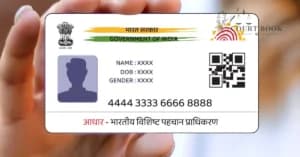The Kerala High Court has held that goods confiscated under Section 130 of the Goods and Services Tax (GST) Act can be released during the pendency of an appeal, provided they have not yet been auctioned.
The single-judge bench of Justice Ziyad Rahman A.A. delivered this verdict while hearing the writ petition filed by Nikhil Ayyappan, a registered taxpayer under the CGST/KSGST Act. The petitioner challenged the confiscation order passed by the Enforcement Officer (2nd respondent) and sought immediate release of the goods and vehicle involved.
Read in Hindi
"As the goods are not reportedly sold, I do not find any reason to deny the opportunity to the petitioner to avail the option of getting the goods released by making the payment of fine in lieu of the confiscation," — Justice Ziyad Rahman A.A.
Read also:- Delhi HC Slams Lawyer for Unprofessional VC Appearance, Emphasizes Need for Court Etiquette
The case arose when the petitioner dispatched scrap materials via a vehicle (Reg. No. KL-52Q 8144), which was intercepted on October 9, 2024, by the Enforcement Officer at Koonathara, Palakkad. Upon discovering irregularities, the officer initiated proceedings under Section 130 of the GST Act. Eventually, a confiscation order (Exhibit P8) was issued, demanding payment of ₹10,82,539 each under CGST and KSGST.
As per the order, the petitioner was allowed to get the goods released by paying the fine within three months. However, during the appeal process, the petitioner received a notice stating that the goods would be auctioned unless a stay order was obtained.
Read also:- Supreme Court Dismisses Lalit Modi's Plea Seeking Rs.10.65 Crore FEMA Penalty Indemnification from BCCI
The department argued that the statute allows release of confiscated goods only under Sections 130(2) and 130(7), which grant a three-month window for paying the fine in lieu of confiscation. Though the stipulated period had expired, it was admitted that the goods had not yet been sold.
Considering the facts, the Court ruled in favor of the petitioner, noting that allowing release of goods would not prejudice the state and the petitioner still had the right to clear the dues.
Read also:- Kerala High Court Clarifies Legal Standards for Proving Execution of Wills Under Evidence Act
“Such an exercise would not cause any prejudice to the State as well,” — Kerala High Court
Accordingly, the Court directed the second respondent to release the goods upon payment of the fine by the petitioner within one month.
Case Title: Nikhil Ayyappan v. State of Kerala
Case Number: WP(C) No. 19789 of 2025
Petitioner’s Counsel: Salim V.S., K. Muhammed Thoyyib, A.M. Fousi, A.B. Ajin
Respondent’s Counsel: Muhammed Rafiq, Senior Government Pleader















